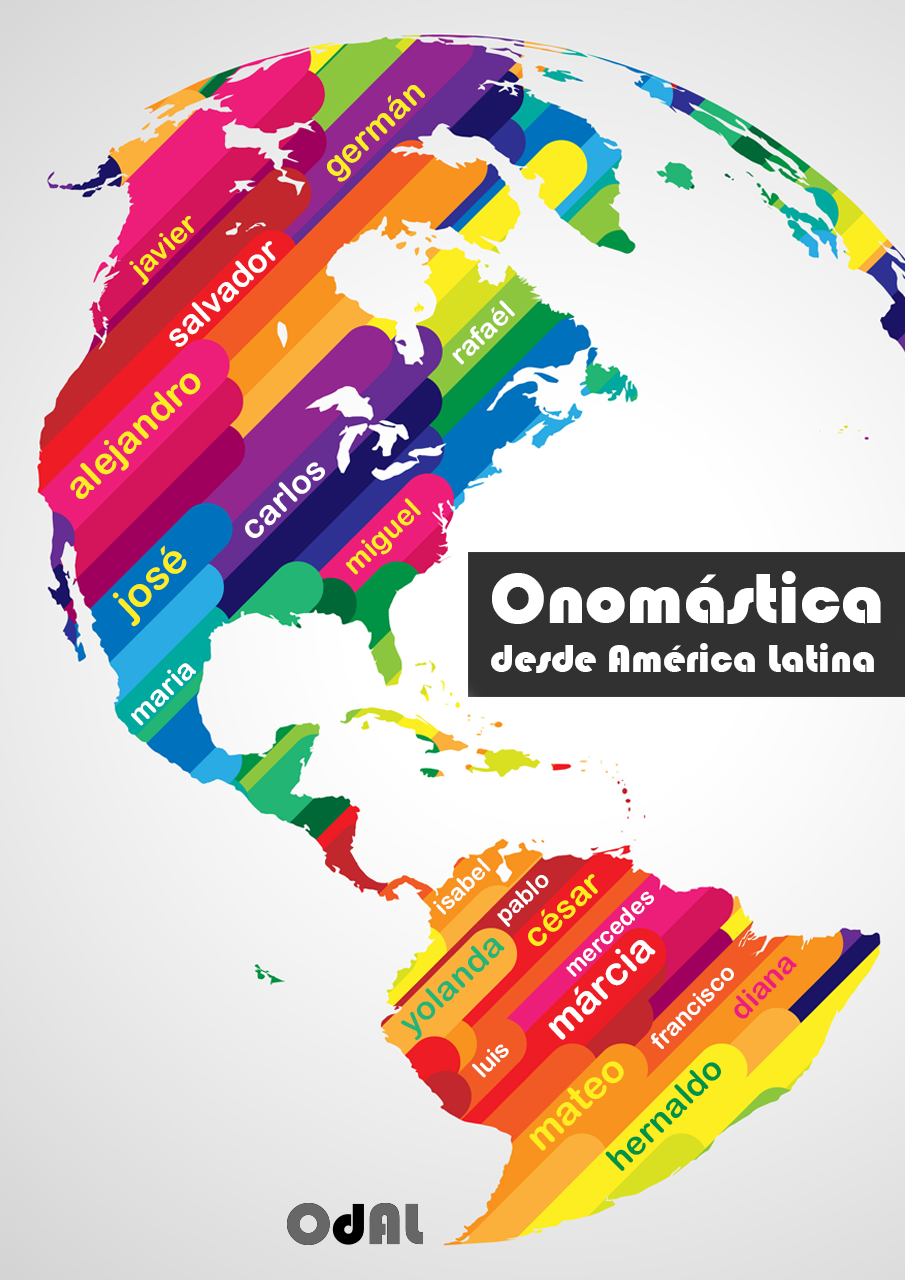Prenomes de origem espanhola no sistema antroponímico húngaro
DOI:
https://doi.org/10.48075/odal.v4i1.31250Palavras-chave:
prenomes, nomeação de moda, repertório de prenomes, húngaro, origem espanholaResumo
Atualmente o repertório de prenomes húngaro, há, provavelmente, há menos de uma centena de nomes de origem espanhola, assim interpretados segundo a etimologia, as línguas intermediárias e as fontes culturais. Este breve artigo descreve e exemplifica esta categoria de nomes, sua composição, seu contexto e suas características principais.
Referências
MKT. = Magyar Keresztnevek Tára. Utónévstatisztika. [Collection of Hungarian Christian Names. First Names Statistics] https://magyarnevek.hu/nevek/utonevstatisztika
Raátz, J. (2012). The Giving and Usage of First Names in Hungary. Onoma, 47, 13-34. https://doi.org/10.2143/ONO.47.0.3085137
Slíz, M. (2020). Various interpretations of the term origin in the description of given name systems. Studia Linguistica Hungarica, 32, 66-75. https://doi.org/10.5281/zenodo.3907338
Slíz, M. & Farkas, T. (2021). Dynamics of the modern Hungarian given name system. Onoma, 56, 15-36. https://doi.org/10.34158/ONOMA.56/2021/2
Unk. = Utónévkereső. [First Name Finder] http://corpus.nytud.hu/utonevportal
Downloads
Publicado
Como Citar
Edição
Seção
Licença
Copyright (c) 2023 Tamás Farkas

Este trabalho está licenciado sob uma licença Creative Commons Attribution-NonCommercial-ShareAlike 4.0 International License.
Aviso de Direito Autoral Creative Commons
Política para Periódicos de Acesso Livre
Autores que publicam nesta revista concordam com os seguintes termos:
1. Autores mantém os direitos autorais e concedem à revista o direito de primeira publicação, com o trabalho simultaneamente licenciado sob a Licença Creative Commons Attribution que permite o compartilhamento do trabalho com reconhecimento da autoria e publicação inicial nesta revista.
2. Autores têm autorização para assumir contratos adicionais separadamente, para distribuição não-exclusiva da versão do trabalho publicada nesta revista (ex.: publicar em repositório institucional ou como capítulo de livro), com reconhecimento de autoria e publicação inicial nesta revista.
3. Autores têm permissão e são estimulados a publicar e distribuir seu trabalho online (ex.: em repositórios institucionais ou na sua página pessoal) a qualquer ponto antes ou durante o processo editorial, já que isso pode gerar alterações produtivas, bem como aumentar o impacto e a citação do trabalho publicado (Veja O Efeito do Acesso Livre).
Licença Creative Commons
Esta obra está licenciada com uma Licença Creative Commons Atribuição-NãoComercial-CompartilhaIgual 4.0 Internacional, o que permite compartilhar, copiar, distribuir, exibir, reproduzir, a totalidade ou partes desde que não tenha objetivo comercial e sejam citados os autores e a fonte.

